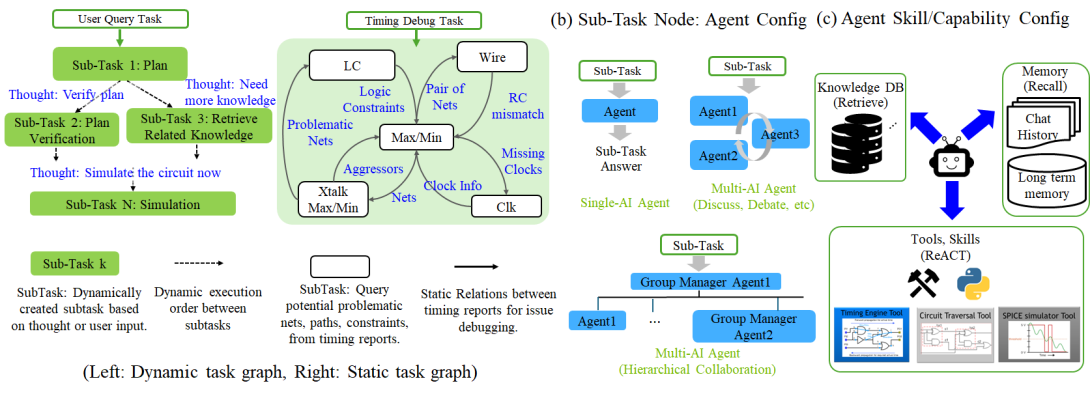Marco: Configurable Graph-Based Task Solving and Multi-AI Agents Framework for Hardware Design

Hardware design presents numerous challenges stemming from its complexity and advancing technologies. These challenges result in longer turn-around-time (TAT) for optimizing performance, power, area, and cost (PPAC) during synthesis, verification, physical design, and reliability loops. Large Language Models (LLMs) have shown remarkable capacity to comprehend and generate natural language at a massive scale, leading to many potential applications and benefits across various domains. Successful LLM-based agents for hardware design can drastically reduce TAT, leading to faster product cycles, lower costs, improved design reliability and reduced risk of costly errors. In this work, we propose a unified framework, Marco, that integrates configurable graph-based task solving with multi-modality and multi-AI agents for chip design by leveraging the natural language and reasoning abilities with collaborative toolkits. Lastly, we demonstrate promising performance, productivity, and efficiency of LLM agents by leveraging the Marco framework on layout optimization, Verilog/design rule checker (DRC) coding, and timing analysis tasks. Notably, the developed multi-AI agents not only achieve a 94.2% functionally correct pass rate on the VerilogEval-Human v2 benchmark but also deliver a 60× speedup in MCMM timing report analysis compared to experienced human engineers.
Publication Date
Uploaded Files
Copyright
This material is posted here with permission of the IEEE. Internal or personal use of this material is permitted. However, permission to reprint/republish this material for advertising or promotional purposes or for creating new collective works for resale or redistribution must be obtained from the IEEE by writing to pubs-permissions@ieee.org.
